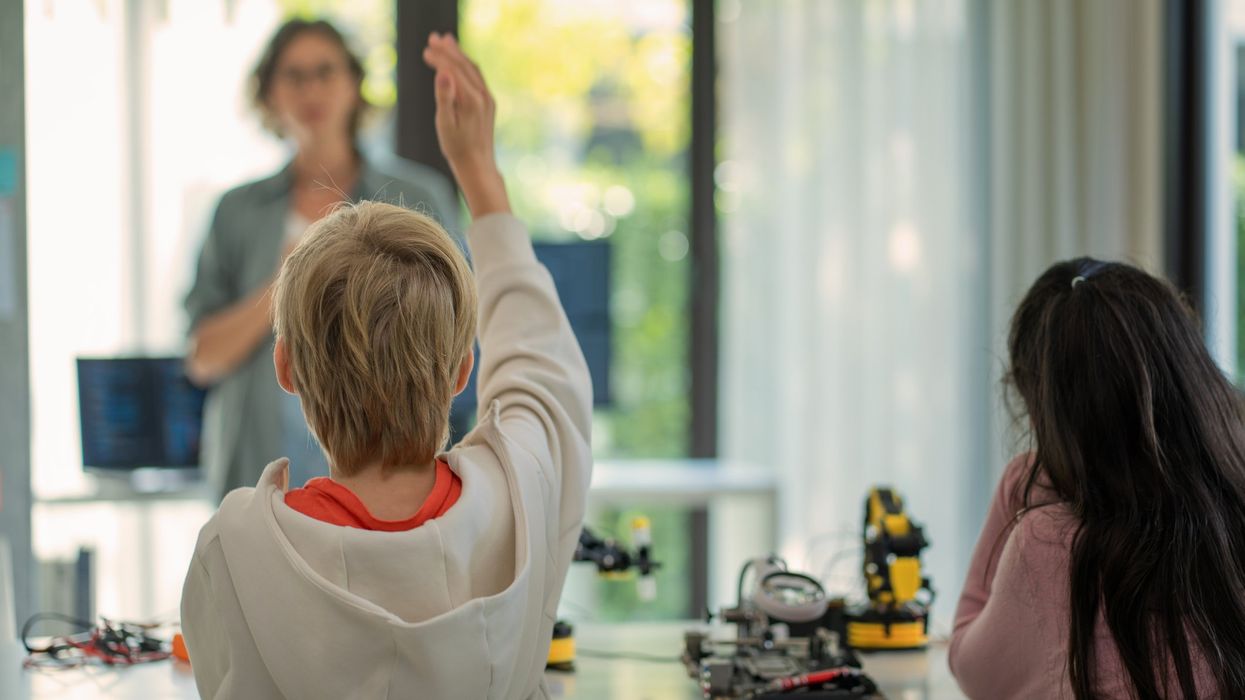Foreign adversaries are already deploying artificial intelligence as a weapon against America, not just on distant battlefields, but within our social media feeds, news sources, and critical infrastructure. AI-powered disinformation campaigns designed to sow chaos and division, sophisticated cyber attacks – these are no longer future hypotheticals; they are clear and present dangers. America's most significant vulnerability in this new era isn't necessarily a lack of technology but a lack of understanding among our own citizens. An unprepared public is fertile ground for manipulation and a weak link in our national defense. To secure our future, we must urgently equip Americans with the knowledge to navigate an AI-shaped world.
This isn't just about recognizing deepfakes. National resilience requires citizens who understand the basics of how algorithms shape their information environment and can think critically about AI's influence. Furthermore, our national security apparatus itself desperately needs more AI-savvy personnel. The Department of Defense faces alarming shortages in its cyber and tech workforce – tens of thousands of critical positions remain vacant – hindering our ability to develop, deploy, and defend against AI capabilities. Simultaneously, our economic edge depends on fostering widespread innovation and adoption of AI, which is bottlenecked by a lack of skilled workers across industries. Simply put, AI literacy is now a cornerstone of both national defense and economic competitiveness.
Recent government efforts, including presidential executive orders focused on AI education, rightly acknowledge this challenge. They propose task forces, grant programs, and public-private partnerships – important signals, but ultimately insufficient. These initiatives largely rely on existing educational structures that are already strained and lack widespread AI expertise. Expecting overburdened K-12 teachers to suddenly become AI experts through optional workshops is unrealistic. We need direct intervention and sustained, expert support in classrooms nationwide, not just top-down directives filtered through slow-moving bureaucracies.
The urgency is magnified by the global race for AI dominance. Competitors like China are not waiting. They are implementing mandatory K-12 AI education, investing massively in talent development, and rapidly closing the gap. China now produces a huge share of the world's top AI researchers, and increasingly, that talent stays home. While America still attracts brilliant minds from abroad, relying on that while our own educational pipeline lags is complacent and dangerous. In the strategic competition over AI, ceding the educational foundation means ceding future leadership.
The solution must match the scale of the problem: America needs a national AI Education Corps.
This initiative would mobilize AI expertise – recruiting talented recent graduates, researchers, and industry professionals – and deploy them directly into K-12 school districts. Think of it like Teach For America but focused specifically on building AI understanding. Corps members would partner with local educators, providing intensive training, customized curriculum support, and ongoing virtual mentorship throughout the school year.
The focus would be foundational and adaptable, not just teaching students how to use today’s AI tools but fostering a deeper understanding of core AI principles, data literacy, algorithmic thinking, and ethical considerations. The goal is to create critical thinkers and adaptable learners prepared for AI’s inevitable evolution, empowering them to both defend against its misuse and contribute to its responsible development. This would be a collaborative effort, tailored to the diverse needs of local schools, not a one-size-fits-all federal mandate.
Creating such a Corps requires real investment, but the cost pales in comparison to the price of inaction – compromised national security, lost economic advantage, and a citizenry vulnerable to manipulation. Public-private partnerships can leverage corporate expertise and resources alongside federal support. Attractive incentives, from loan forgiveness to career opportunities, can mobilize the necessary talent. This isn't about building bureaucracy; it's about efficiently deploying vital expertise where it's needed most.
The AI transformation is happening now. Relying on slow, incremental changes to our education system is a recipe for falling behind. An AI Education Corps offers a bold, concrete path to rapidly build the widespread AI literacy that our national security and economic future demand. It’s an investment in our people, our resilience, and America’s continued leadership. It’s time to build it.
Kevin Frazier is an AI Innovation and Law Fellow at Texas Law and Author of the Appleseed AI substack.





















